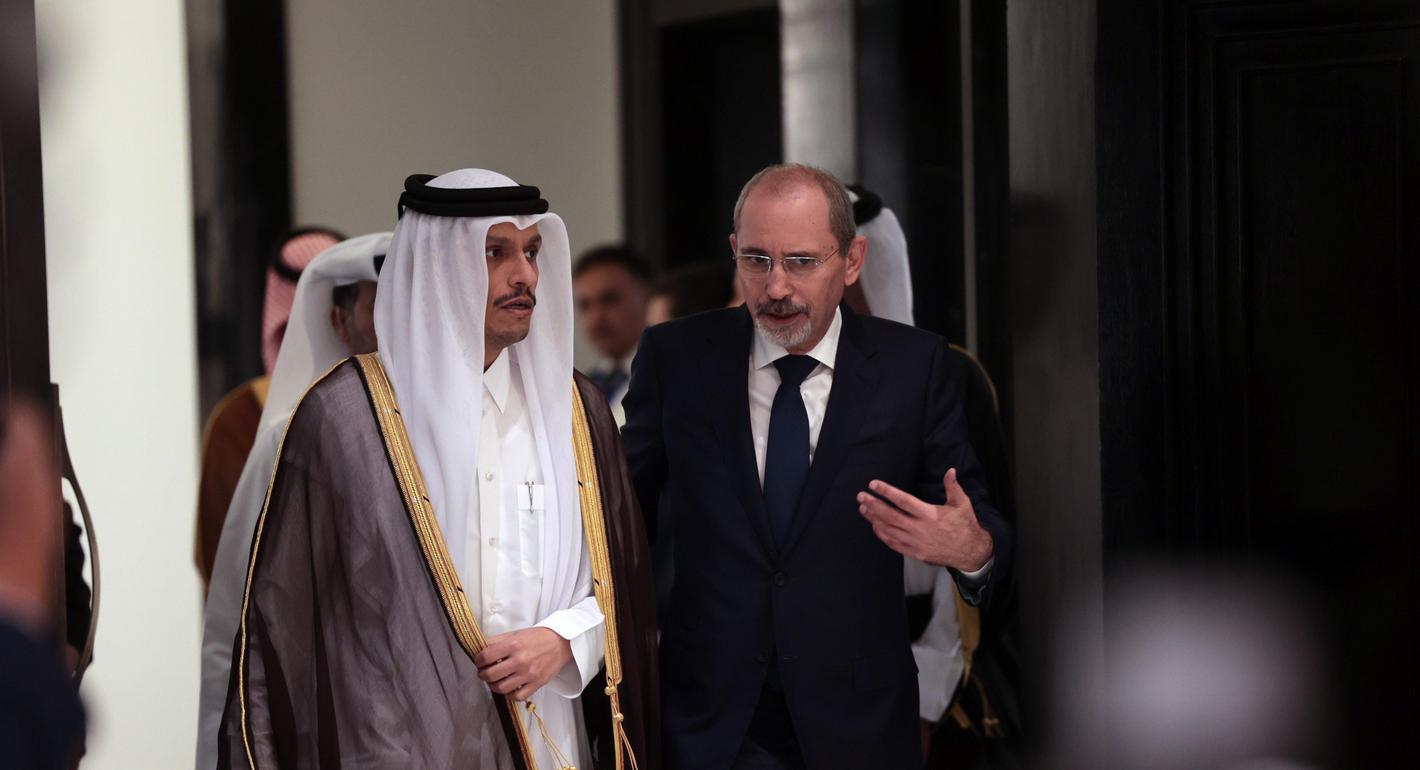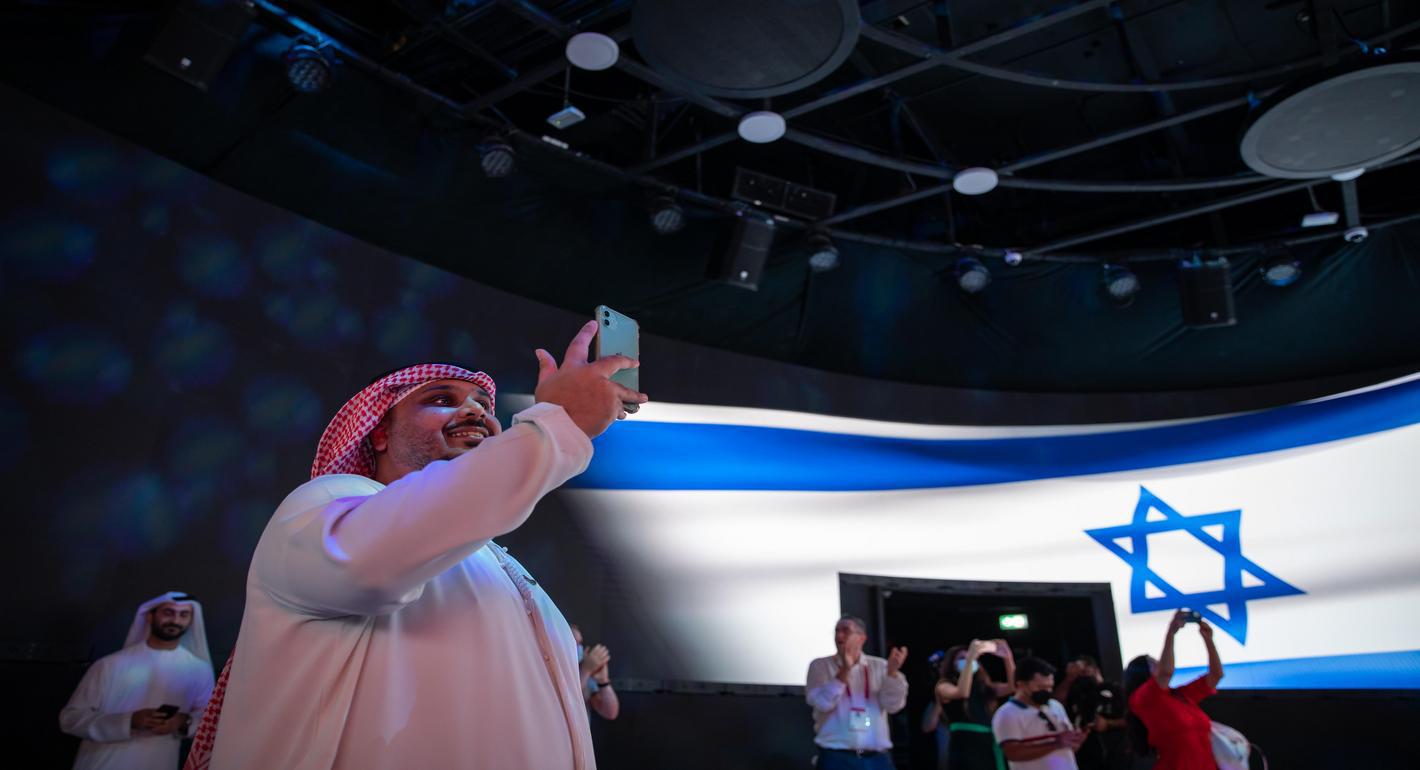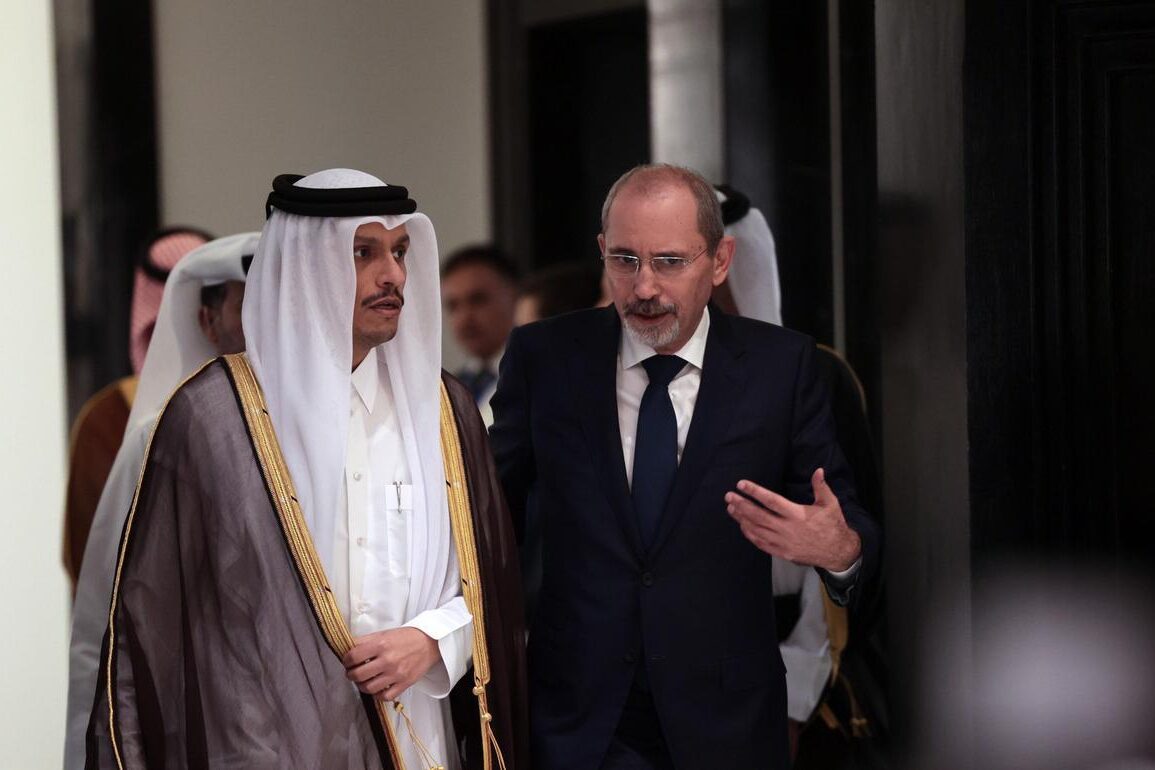As it enters its sixth week, in retaliation for Hamas’ October 7 attacks, the Israeli military assault on the Gaza Strip shows no signs of slowing down. With the Palestinian death toll now exceeding 11,000, some Arab Gulf states have tried to use their regional and international leverage to bring an end to the hostilities.
Karim El Taki shows how Qatar has emerged as a critical intermediary between Israel and Hamas, taking advantage of its strong relationships with Israel’s Western allies as well as with Hamas’ own officials. While Doha is keen to capitalize on this diplomatic opportunity, mediation is not without its perils—especially as the emirate tries to distance itself from the charge of harboring terrorist groups.
On November 11, Saudi Arabia hosted dozens of leaders in an Islamic-Arab summit, where they issued a joint communique calling for an immediate ceasefire and charging Israel with war crimes. At the same time, however, Hind Al Ansari reveals that Saudi Arabia and the UAE are likely taking an active role to curb pro-Palestine sentiment on Arabic social media — while pro-Israel Arab influencers are reaching new audiences in an attempt to shift public opinion.
Qatar’s Stakes in the Israel-Hamas Conflict

Doha has sought to maintain its reputation for effective mediation, but as Israel expands its assault on Gaza, the emirate’s options are increasingly limited.
Karim El Taki
In the ongoing war between Israel and Hamas, Qatar has positioned itself as the foremost intermediary. So far, the Gulf emirate has negotiated the release of several hostages held in Gaza—and with more than 200 individuals remaining captive, and Hamas offering to swap them for the more than 6,000 Palestinians held in Israeli prisons, Qatari diplomacy appears to be both sides’ best bet for de-escalation. As the danger of regional escalation remains real amidst Israel’s expansion of its air and ground offensive, Doha’s hostage negotiation deal may prove to be its most formidable and important mediation effort—yet also its riskiest.
Qatari mediation owes its appeal to the emirate’s peculiar network of regional and global relations. Doha is largely aligned with US policy in the Middle East, hosting the largest American airbase in the region and holding as of 2022 the official title of “major non-NATO ally” of the United States. At the same time, the country hosts senior Hamas officials, whose government in Gaza it finances in full coordination with Israel. Its proximity to Hamas is at once Qatar’s greatest asset in the negotiation of hostage releases and its most cumbersome liability. The unprecedented magnitude of Hamas’s attack, coupled with its sweeping designation in the West as a “terrorist organization” on par with ISIS, has at the very least embarrassed Qatar. In the United States, a bipartisan group of 113 Members of Congress has called on President Joe Biden to pressure Qatar to “cease all ties with Hamas.” Similarly, the Zionist Organization of America insisted on the deportation of those “directing Hamas terror operations from Qatar.”
Bracketing Qatar with Hamas undermines the emirate’s endeavors to dissociate itself from Islamist terrorism. Since the Gulf Crisis (2017-21), during which Riyadh and Abu Dhabi accused Doha of sponsoring terrorism across the region, Qatar has invested considerable efforts—in diplomacy, lobbying, arms trade, and media campaigns—to establish itself as a responsible US ally in the fight against terror. Doha engaged with Washington in security dialogues; signed counterterrorism cooperation agreements; mounted an unprecedented lobbying operation in the US capital; and even ran television commercials. After October 7, Qatar’s international reputation may once again be at stake.
While Qatar did not condemn Hamas’s attack, which would have been very costly in the “Arab street,” Doha’s ambassador to Washington refuted the claim that his country funds and sponsors Hamas, and disputed the contention that hosting Hamas leaders signified an “endorsement.” Such statements are reminiscent of Qatar’s lobbyists, who asserted in 2017 that the emirate only funded civilian and humanitarian projects in Gaza. But this effort to distance itself from Hamas also carries its own risks. Israel’s National Security Advisor, for example, commended the emirate as “an essential party and stakeholder” and its diplomatic efforts as “crucial.” While his view was not unanimous in Israel—a former premier promptly retorted that Qatar was “the enemy itself”—any Israeli compliment is a poisoned chalice, as Israel decimates Gaza and slaughters Palestinians. Qatar can still rely on Al Jazeera to showcase its pro-Palestinian credentials, though this could be complicated as it faces American pressure to tone down its war coverage.
As the contradictions of Qatar’s foreign policy come to the fore, the emirate is compelled to substantiate to its Western allies the value of its relations with Hamas. More than ever, it finds itself in need of leading a successful mediation—a prospect that would be received with a sigh of relief by the Iran-led “Axis of Resistance” if it averts further escalation. Yet the mediation’s outcome hinges not only on Doha’s leverage over Hamas but also on Israeli actions. As Tel Aviv deepens its offensive in Gaza, moving further away from a negotiated hostage settlement, the outlook for Qatar appears grim. And as long as Israel maintains its stated goal of eliminating Hamas, assuming such a scenario is possible, Qatar’s ambition to weigh in on a postwar Israeli-Palestinian settlement will be hindered.
Karim El Taki is an Assistant Professor in Politics of the Middle East at the University of Groningen in the Netherlands. He holds a PhD in Politics and International Studies from the University of Cambridge. Follow him on X @karimeltaki.
The Rise of Arab Zionist Influencers and the War in Gaza

Despite the brutality of its military campaign in Gaza, some Arab figures continue to voice their support for Israel, while Arab governments limit pro-Palestine speech on social media.
Hind Al Ansari
On October 25, at the Future Investment Initiative in Riyadh, Jared Kushner maintained that the Abraham Accords are “more important than ever” amidst the ongoing war in Gaza. During the same event, some Arab politicians also emphasized the importance of building diplomatic ties. While one might instinctively view the Israeli assault on Gaza war as dooming any popular Arab support for the Abraham Accords, a review of social media over the last few weeks suggests an unconventional divergence in public discourse. In a stark change to the pre-2020 status quo, as pro-Palestine content faces censorship, some Arab social media influencers are unequivocally supporting Israel.
Since October 7, these influencers have echoed pro-Israel tropes common to Western media. Among them is Loay Al-Shareef, a Saudi national and self-proclaimed Zionist. On October 11, Al-Shareef posted a reel on his Instagram page addressing Israelis in English: “I chose to take a side with the civilized world,” he asserted, “not the side of extremism or terrorism presented by Hamas.” Similarly, after the Al-Ahli Hospital bombing, Bahraini-British influencer Amjad Taha criticized people for “point[ing] fingers at Israel rather than at Gaza’s terrorists.” Amjad Taha’s growth as an influencer is directly tied to his views on Israel; he became widely-known following a viral 2020 interview where he praised Israeli soldiers, and has feverishly tweeted anti-Hamas and anti-Iran propaganda since the war broke out.
Influencers like Al-Shareef and Taha may function as a barometer for Arab governments, allowing them to assess public reactions to pro-Israel sentiment and, in turn, adapt their own discourse. While Al-Shareef and Taha’s unequivocal pro-Israel stance likely delegitimizes them in the eyes of most Arabs, for a smaller segment of their Arab followers, there is an opportunity to sway perceptions about Israel amidst the ongoing catastrophe. Al-Shareef posted a screenshot of a text message by an anonymous Saudi follower, in which he commended him for “spreading peace and tolerance between Arabs and Jews” and that he “should not feel demoralized by the backlash.”
Other Arab social media influencers and users, however, recently found themselves in an unusual predicament. On October 31, Emirati professor and political commentator Abdulkhaleq Abdulla published and then shortly deleted a post arguing that “the people want to expel the Israeli ambassador [to the UAE].” In Saudi Arabia, Al-Hilal Football Club deleted an image of one of their players wearing a Palestinian keffiyeh in less than one hour after posting it on X. Multiple users who objected to Al-Hilal’s decision subsequently posted identical apologies—suggesting that they were pressured to do so by the government. Like the growth of pro-Israel Arab influencers, pro-Palestinian Arab influencers engaging in self-censorship is a relatively new phenomenon. But it fits a wider pattern of state-led attempts by some Arab governments to both crack down on dissent and shape the narrative on Israel in a new age of normalization, in part through Emirati influencers and officials “spreading disinformation on social media.” Arab regimes may believe that limiting pro-Palestine content, as Israel continues its assault on Gaza, might help restrain civil unrest. It also helps creates the illusion of a balance of pro-Israel and pro-Palestine perspectives across the region, which governments see as strategic in their relations with Israel and the West.
Restricting social media discourse on the Palestinian cause could mean that solidarity with Palestinians becomes a new form of dissent in some Arab states. Simultaneously, by allowing space for pro-Israel Arab voices on social media, not only do these governments signal their shifting attitude on Israel, but they also exhibit the presence of newly emerging perspectives within the Arab public sphere, even amidst widespread outcry across the Arab World over the casualties in Gaza.
Hind Al Ansari is a researcher and policy analyst. Her work focuses on social and educational developments in the Gulf Cooperation Council states and the broader Muslim world.
This post was originally published on this site be sure to check out more of their content.







